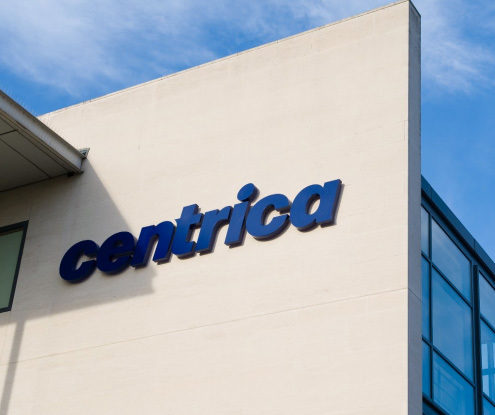
Centrica Plc shares rose the most in more than six months after Britain’s energy regulator published its long-awaited cap on power and gas bills for as many as 11 million customers.
Shares in the U.K.’s biggest energy supplier to homes rose as much as 4.6 percent and SSE Plc gained the most since June. The idea of a cap was floated by the government last year and on Ofgem pegged the limit for how much utilities can charge households on so-called standard variable tariffs at 1,136 pounds ($1,465) a year. That’s about 7 percent below the average SVT price.
“This morning’s news acts as a line in the sand, starts to give clarity on future margins and has removed some of the downside risk to market expectations,” John Musk, analyst at RBC Europe Ltd said. “We continue to see retail markets in the U.K. as challenging with high levels of political focus, regulatory scrutiny and intense competition from smaller suppliers.”
The level is in line with some analyst expectations. Both Jefferies Group LLC and Sanford C. Bernstein & Co. LLC had said before the announcement the SVT ceiling was likely to be set close to the pre-payment cap level, which protects the most vulnerable customers. Ofgem increased this cap to the same level as the SVT limit on Aug. 7.
Centrica was up 3.7 percent to 148.75 pence at 8:56 a.m in London. SSE gained as much as 1.8 percent to 1,287 pence.
Iberdrola SA’s Scottish Power and Innogy SE’s Npower, which have the most expensive SVTs according to price comparison website MoneySuperMarket, will be hit harder than their U.K. peers. Iberdrola extended its worst streak since March, sliding 0.6 percent, while Innogy was little changed.
“Customers will be assured they’re paying a fair price for their energy,” Ofgem Chief Executive Officer Dermot Nolan said on BBC Radio 4. For customers on the worst deals “these prices will come down.”
Both Prime Minister Theresa May’s Conservative government and the Labour opposition have backed the price cap after evidence that utilities were overcharging their customers. Ministers couldn’t be too heavy-handed bearing in mind the need to draw 100 billion pounds in investment in the next decade to keep the nation’s electricity system up to date.
“It is crucial that the cap ensures we have an investible energy sector where efficient and financially robust companies can trade, and innovation and engagement can continue to flourish and deliver benefits for consumers” Energy U.K., the industry trade body said.
The ceiling was sped through Parliament by business minister Claire Perry, becoming law before the summer recess. The policy followed a two-year investigation into competition in the energy market by the antitrust watchdog, which found that 70 percent of customers at the six largest energy firms were on SVTs, the most expensive deals. The findings May to introduce cap for the price of what she called “rip off” contracts.
Ofgem aims to have the cap in place by the end of the year, it said in the statement. The level will be updated every six months and be in place until 2020 with the option to extend it to 2023 if needed. The limit will save consumers about 1 billion pounds.
“Today’s announcement from the independent regulator setting out the detail of the Government’s price cap will mean that households can have confidence that when energy costs fall their bills will too,” Greg Clark, business and energy secretary said in a statement.
EON SE announced last month it would cut 500 U.K. jobs in Britain ahead of the squeeze on profits expected from the price cap.
Since the government announced the price cap utilities have been trying to retain customers by moving them off SVTs and onto alternatives. Centrica, which has the most customers, now has 3.5 million customers on the SVT, down from 4.3 million at the start of the year. The company’s ambition is to reduce that further to 3 million by the end of the year.
By the time the price cap comes in Centrica will lose about 210 million pounds for its SVT customers, which should be “manageable,” according to Ahmed Farman, an analyst at Jefferies in London. “In our view, this should help to alleviate the two year overhang on the stock.”
Recommended for you
